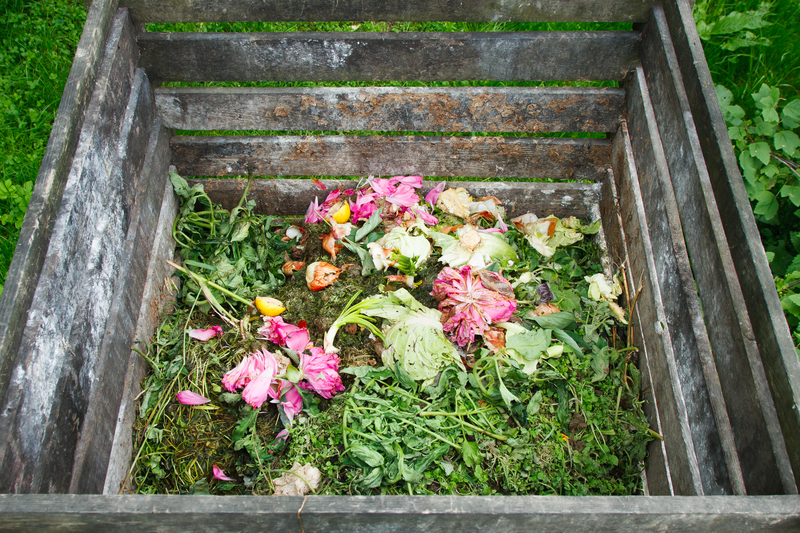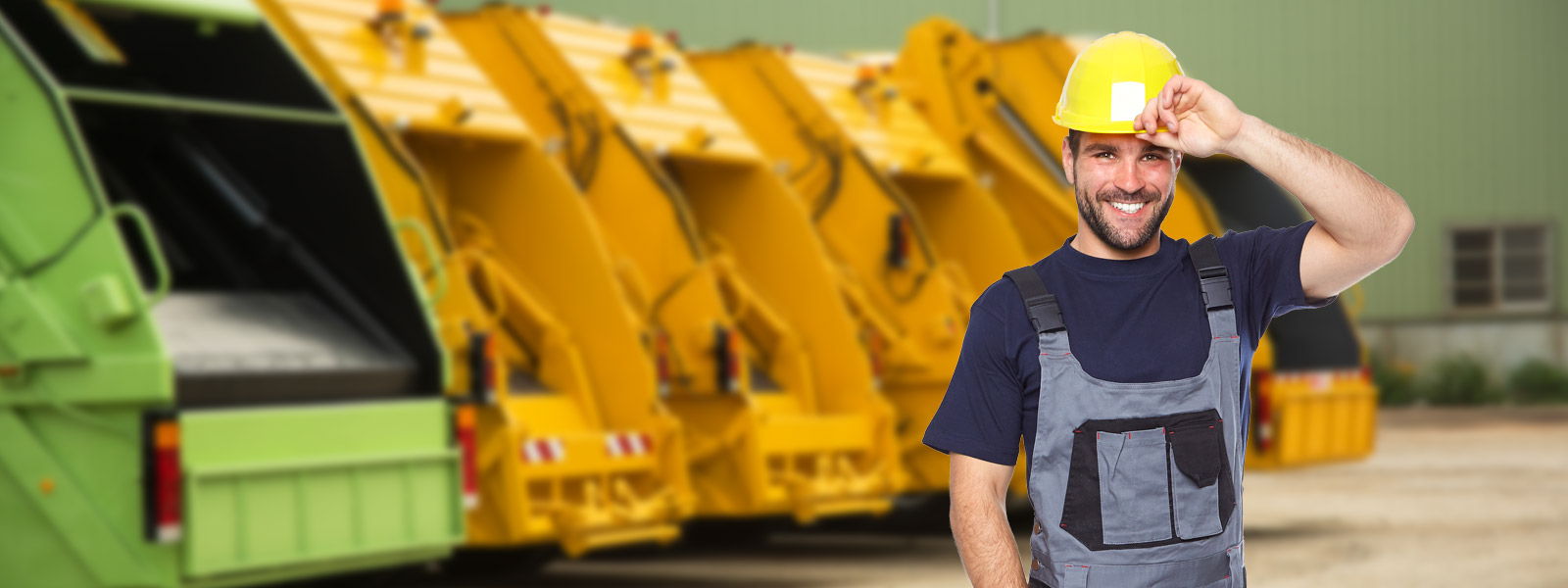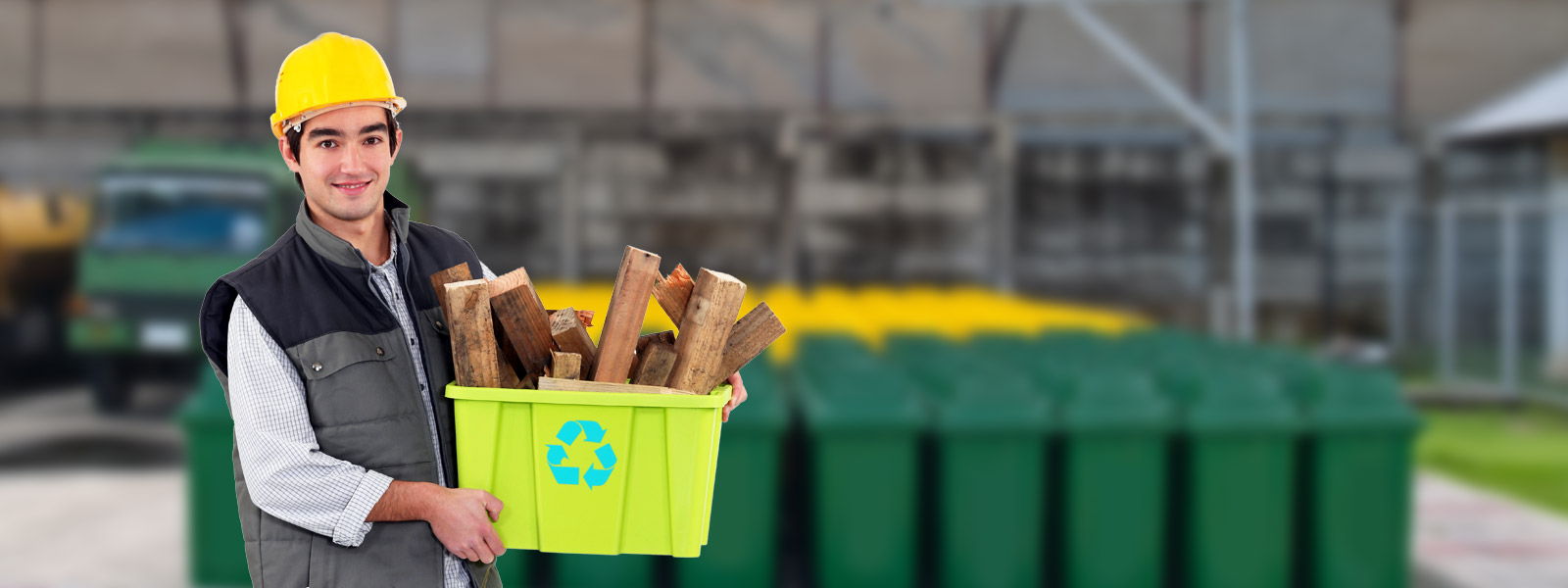Transforming Workplace Waste Management
Posted on 16/10/2025
Workplace waste management is an ever-evolving field that has become a crucial component of modern business operations. With global awareness of environmental challenges on the rise, organizations are prioritizing more effective, sustainable, and innovative waste management strategies. Transforming how waste is managed in the workplace is not just about regulatory compliance--it's a key driver for achieving operational efficiency, cost savings, and positive brand perception.
Why Is Waste Management in the Workplace Important?
Every organization, regardless of its size or industry, generates waste. Poor waste management can result in increased operational costs, environmental contamination, and potential legal consequences. On the other hand, implementing efficient workplace waste management systems can yield significant benefits such as:
- Cost reduction through minimized waste disposal fees and resource optimization
- Enhanced workplace safety and hygiene
- Improved employee morale by aligning with sustainability values
- Compliance with environmental regulations
- Strengthening of corporate social responsibility (CSR) initiatives
The Environmental Impact of Office Waste
Did you know that the average office worker generates about two pounds of waste every single day? Most of this consists of paper, plastic, food, and electronic waste. Landfilling or incinerating these materials can release harmful pollutants, contribute to greenhouse gas emissions, and deplete valuable resources. Therefore, transforming your workplace waste management practices is vital for environmental sustainability.

Key Components of Effective Workplace Waste Management
Successful transformation revolves around a holistic approach that encompasses waste reduction, segregation, recycling, and education. Let's delve deeper into each component:
1. Waste Audit and Assessment
Before transforming your workplace waste management, conducting a comprehensive waste audit is essential. This step involves:
- Identifying the types and quantities of waste generated
- Photographing waste points and flow patterns
- Spotting inefficiencies in current disposal methods
- Involving key stakeholders in the audit process
This assessment lays the foundation for designing a targeted waste management strategy.
2. Waste Reduction at Source
Reducing waste at its source is often the most effective way to minimize environmental impact. Here are some proven strategies:
- Go paperless wherever possible: Utilize digital signatures, files, and collaborative tools
- Procure in bulk: Reduces packaging waste associated with small, frequent orders
- Encourage reusable materials: Provide staff with reusable water bottles, mugs, and lunchboxes
- Supplier collaboration: Partner with vendors who use eco-friendly or minimal packaging
3. Effective Waste Segregation
Proper segregation is key for successful recycling and safe disposal. Implement distinct and clearly labeled bins for waste streams such as:
- Paper and cardboard
- Plastics and metals
- Food and organic waste
- E-waste
- General non-recyclables
Place bins in accessible locations with clear signage to ensure compliance.
4. Recycling and Upcycling Initiatives
A robust recycling program at the workplace not only diverts waste from landfills but also helps in resource conservation. Innovative upcycling, such as repurposing office furniture or utilizing scrap material for creative projects, also plays a major role in waste reduction. Encourage partnerships with local recyclers and upcycling organizations.
5. Safe Management of Hazardous Waste
Some workplace environments, such as labs or tech firms, generate hazardous waste materials (e.g., batteries, e-waste, solvents). These require special handling and disposal by certified professionals. Educate employees on the dangers and ensure compliance with all regulations.
6. Employee Engagement and Training
Staff participation is the backbone of transforming workplace waste management. Conduct regular educational workshops and campaigns. Appoint sustainability champions or green teams to lead initiatives and track progress.
Innovative Trends in Workplace Waste Management
As technology and environmental consciousness evolve, so do waste management solutions for businesses. Here are some cutting-edge trends that can transform your workplace waste management:
1. Smart Waste Bins
IoT-enabled smart bins use sensors to track fill levels, enabling timely pick-ups and reducing overflowing or unnecessary collection trips. Some even feature AI technology to assist users in sorting recyclables correctly, boosting recycling rates and operational efficiency.
2. Digitization and Data Analytics
Using cloud-based waste management software allows organizations to track waste generation, disposal costs, and recycling progress in real time. Detailed analytics can help pinpoint inefficiencies and spotlight areas for improvement.
3. Circular Economy Models
Adopting circular economy principles means viewing waste as a resource. Businesses can loop materials back into supply chains through repair, refurbishment, or remanufacturing, significantly minimizing waste output. For example, tech companies can design modular electronics that are easy to upgrade or recycle.
4. Composting Programs
Food and organic waste constitute a significant proportion of office refuse. On-site composting solutions or participation in community composting programs transform these scraps into valuable soil additives, reducing landfill burden and emissions.
Step-by-Step Strategy for Transforming Your Workplace Waste Management
Implementing an upgraded waste management system doesn't need to be overwhelming. Here's a step-by-step approach:
- Audit and Plan: Establish a baseline by assessing current waste generation and management practices. Set clear, measurable goals aligned with organizational values.
- Engage Stakeholders: Involve employees, facility managers, and leadership. Hold brainstorming meetings to encourage input and foster ownership.
- Redesign Processes: Based on audit findings, introduce new waste segregation bins, recycling protocols, and policies that support waste reduction.
- Education and Training: Roll out awareness campaigns using posters, emails, and workshops. Empower green teams to lead by example.
- Monitor and Adapt: Use checklists and digital tools to measure progress. Adjust strategies based on feedback and new challenges.
- Celebrate Achievements: Recognize teams and individuals who contribute the most. Publicize wins in newsletters and annual reports.
Regulatory Compliance in Office Waste Management
Transforming your workplace's waste management system should align with local, national, and industry-specific waste regulations. This may include mandatory recycling ordinances, e-waste disposal requirements, or hazardous waste documentation. Assign a compliance officer or work with a consultant to ensure all rules are met and recorded accurately.
Advantages of Achieving Compliance
- Reduced legal risk and potential fines
- Enhanced reputation with stakeholders and the public
- Increased eligibility for green business certifications
Challenges in Transforming Workplace Waste Management
Despite its importance, transforming workplace waste management presents several obstacles:
- Behavioral inertia - Employees may be resistant to change
- Lack of resources to invest in new infrastructure
- Difficulty in accessing reliable recycling or composting programs
- Complex supply chains complicating the return and reuse of materials
- Managing hazardous or confidential waste securely
These challenges can be overcome with persistent education, top-down leadership commitment, and incremental improvements.
Benefits of Transforming Workplace Waste Management
When organizations take meaningful steps toward improving their waste management systems, the benefits are wide-ranging:
- Environmental Protection: Reduced resource extraction and pollution
- Brand Advantage: Enhanced public image among customers and partners
- Financial Savings: Lower costs from landfill diversion and resource conservation
- Employee Engagement: Boosted morale and productivity from participating in sustainability efforts
- Innovation: Drive to create new products or services from waste streams
Case Study: A Real-World Success Story
XYZ Corporation, a leading software company, decided to transform its office waste management system in 2022. Through an initial waste audit, the company identified that 60% of its waste was recyclable, but only 20% was being properly sorted.
By introducing color-coded bins, launching quarterly recycling competitions, and automating pickup schedules using smart bins, XYZ saw:
- A 50% reduction in general waste sent to landfill
- Resource cost savings of $10,000 annually
- Improved employee satisfaction, as revealed by internal surveys

How to Promote a Green Culture in the Workplace
For workplace waste management transformation to be truly effective, sustainability must become part of your organizational culture. Here's how:
- Lead by Example: Leadership teams should champion waste reduction and recycling efforts.
- Integrate sustainability into onboarding: Make eco-friendly waste management part of new employee orientation.
- Encourage innovation: Solicit ideas from employees for ongoing waste reduction and recycling initiatives.
- Reward green behavior: Offer incentives or public recognition for teams or individuals making sustainability strides.
Conclusion: The Future of Workplace Waste Management
Transforming workplace waste management is no longer a luxury or a trend--it's a vital aspect of running a responsible and profitable business. Prioritizing sustainable strategies not only helps protect the environment but also strengthens your organization's bottom line and reputation.
By embracing audits, reducing waste at the source, promoting proper segregation, adopting new technologies, and fostering a green culture, any workplace can significantly reduce its environmental footprint. As more organizations recognize the value of sustainable waste management, the workplace of the future will be cleaner, greener, and more innovative than ever before.
Now is the perfect time to begin your journey towards transforming workplace waste management--start today for a more sustainable tomorrow!
Latest Posts
Unlocking the Secrets of Sustainable Pot Disposal
Simple Steps to Curtail Your Use of Plastic Products
Stress Less: Transform Your Space, Transform Your Mind
 House clearance
House clearance Rubbish collection
Rubbish collection








 020 3744 6462
020 3744 6462 020 3744 6462
020 3744 6462


